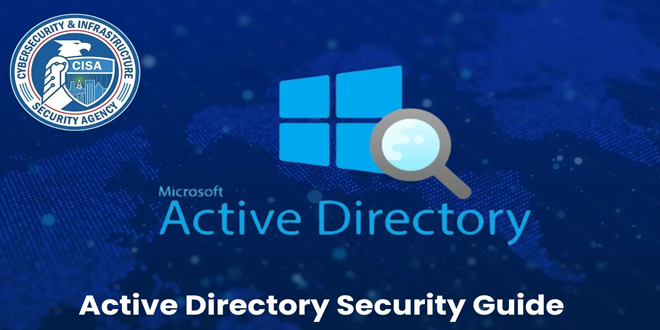To improve cybersecurity, the Cybersecurity and Infrastructure Security Agency (CISA) has partnered with international agencies to release a guide on detecting and addressing Active Directory compromises.
This guidance, from the ASD, NSA, CCCS, NCSC-NZ, and NCSC-UK, informs organizations about common techniques used by cybercriminals to target Microsoft Active Directory.
Active Directory is essential for authentication and authorization in enterprise IT networks worldwide, offering services like Domain Services (AD DS), Federation Services (AD FS), and Certificate Services (AD CS).
Active Directory is a key target for cyber attackers due to its weak default settings, complicated relationships, outdated protocols, and insufficient security diagnostics tools.
Common Techniques Exploited by Malicious Actors:
The guide lists 17 ways malicious actors compromise Active Directory.
Key Techniques Include:
Kerberoasting: This involves taking advantage of certain user accounts to get tickets that can be decoded to find the actual password.
Authentication Server Response (AS-REP) Roasting: This method focuses on user accounts that skip the first security step, enabling attackers to decode the AS-REP ticket to retrieve the password.
Password Spraying: A method where attackers try common passwords on many accounts to gain access.
Machine Account Quota Compromise: Taking advantage of the default limit on machine accounts a user can create to gain unauthorized access.
Unconstrained Delegation: Letting attackers act as any user in the domain.
Mitigation Strategies:
The guide provides robust mitigation strategies to protect against these threats:
Implementing Microsoft’s Enterprise Access Model: This model helps ensure that highly privileged user accounts are not compromised by lower-level systems and that these accounts only manage their own secure resources.
Minimizing SPNs: Limit the number of user objects with Service Principal Names (SPNs) to reduce the risk of Kerberoasting attacks.
Ensuring Kerberos Pre-authentication: Configure all user accounts to require Kerberos pre-authentication to prevent AS-REP Roasting attacks.
Using Group Managed Service Accounts (gMSAs): Automatically changing and securing passwords for service accounts.
Monitoring and Logging: Centrally collect and review events like TGS ticket requests to spot unusual activity.
Detecting Active Directory compromises is difficult because legitimate and malicious activities often look alike. The guide recommends using tools like BloodHound, PingCastle, and Purple Knight to spot misconfigurations and vulnerabilities. It suggests looking at event ID 4769, which tracks TGS ticket requests, to spot possible Kerberoasting activity.
This guide highlights the importance for organizations to prioritize the security of their Active Directory environments.
Organizations can improve their cybersecurity by understanding common attack techniques and applying recommended mitigation strategies to protect against serious threats. To protect enterprise IT networks from evolving cyber threats, staying informed and proactive is crucial.
India linked hacker to target Bangladeshi Gov.t and law agency
 InfoSecBulletin Cybersecurity for mankind
InfoSecBulletin Cybersecurity for mankind














